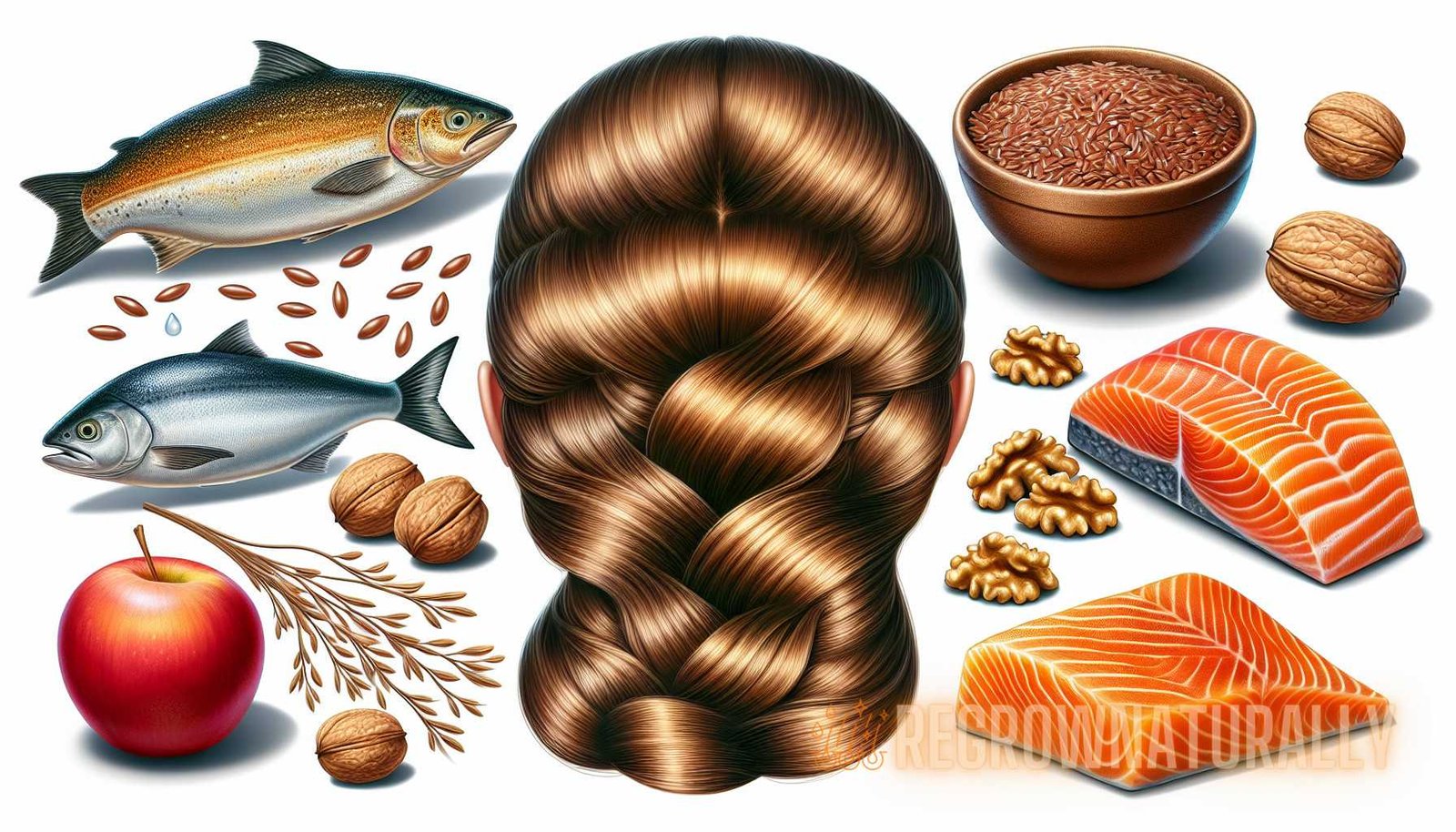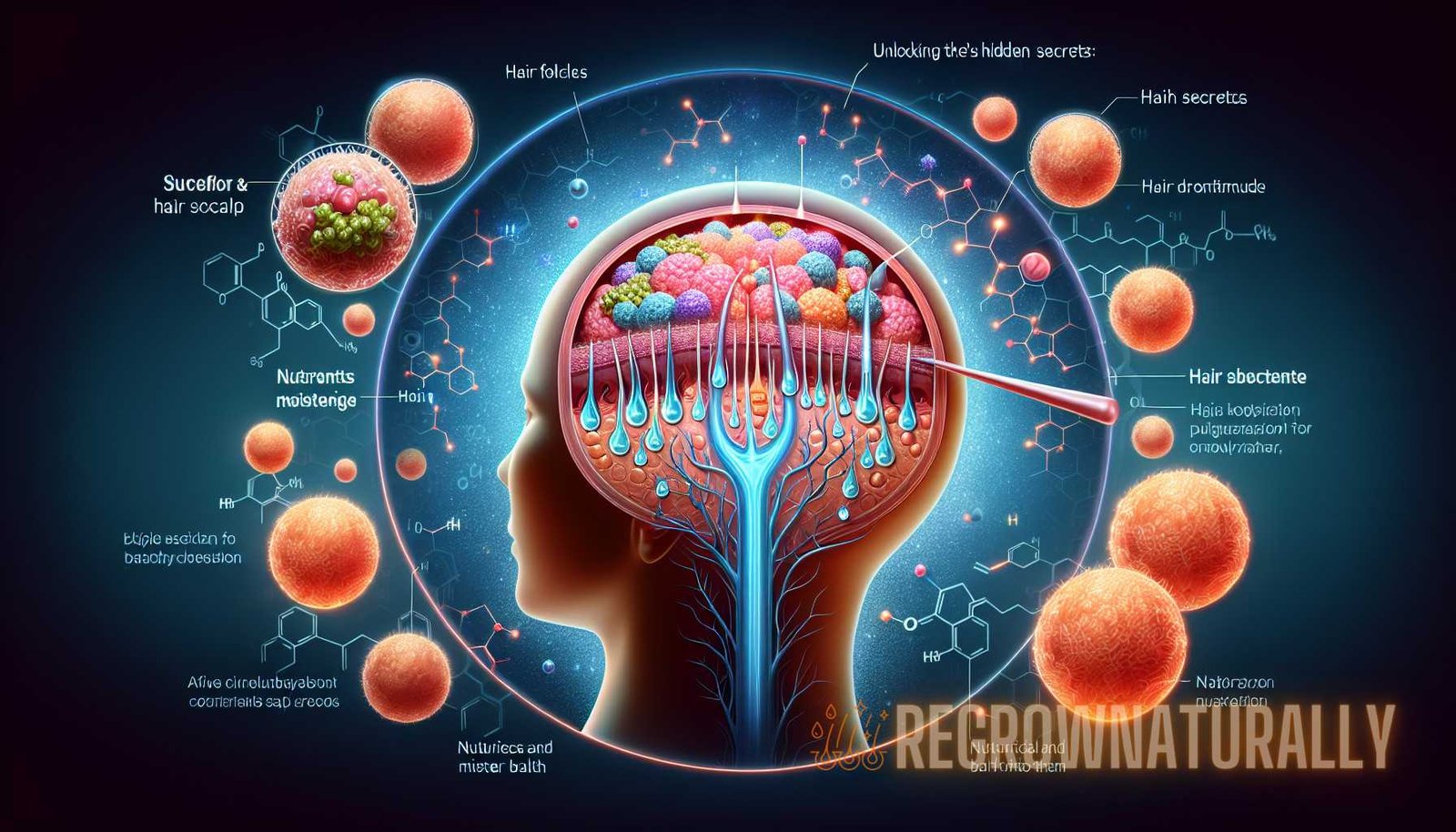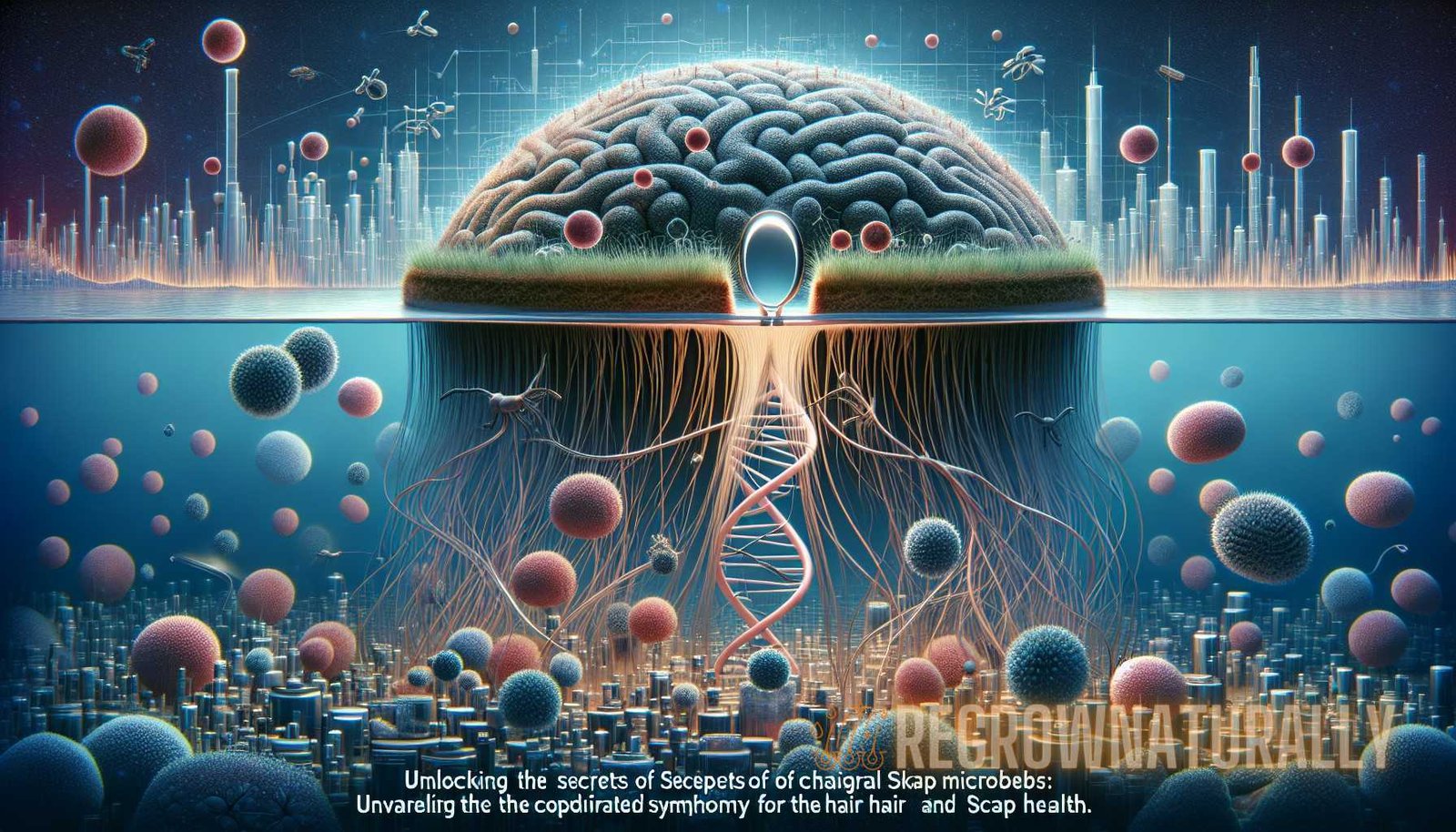Unlocking the Scalp’s Hidden Secrets: Unveiling the Key to Optimal Hair Health and Well-being
The scalp, often overlooked when it comes to hair care, plays a vital role in the overall health and well-being of our hair. It serves as the foundation for healthy hair growth, providing nutrients and moisture to the hair follicles. However, many of us are unaware of the secrets hidden within our scalps and how they can impact the condition of our hair. In this article, we will delve deep into the scalp’s mysteries, uncovering the key to optimal hair health and well-being.
The Scalp Microbiome: A Complex Ecosystem
The scalp is home to a diverse community of microorganisms known as the scalp microbiome. This complex ecosystem consists of bacteria, fungi, and other microorganisms that reside on the scalp. Just like the gut microbiome, the scalp microbiome plays a crucial role in maintaining overall health.
A balanced scalp microbiome promotes healthy hair growth and prevents conditions like dandruff, dryness, and inflammation. It helps regulate the production of sebum, a natural oil produced by the scalp, which moisturizes the hair and keeps it healthy. Imbalances in the scalp microbiome can lead to various scalp and hair issues.
Want to learn more about the scalp microbiome and its impact on hair health? Check out this informative article available here.
Common Scalp Issues: Causes and Solutions
Understanding the underlying causes of common scalp issues is crucial for maintaining a healthy scalp. Let’s take a closer look at some of these issues and explore their solutions:
- Dandruff: Dandruff is a common scalp condition characterized by white flakes on the scalp and hair. It is caused by an overgrowth of a yeast-like fungus called Malassezia. Regular shampooing with anti-dandruff shampoos containing ingredients like pyrithione zinc or ketoconazole can help control dandruff.
- Dry Scalp: Dry scalp occurs when the scalp lacks moisture, leading to itchiness and flakiness. It can be caused by various factors such as cold weather, excessive shampooing, or using harsh hair products. Using moisturizing shampoos and incorporating scalp oils into your hair care routine can help alleviate dry scalp issues.
- Scalp Acne: Just like facial acne, scalp acne can be a frustrating issue. It occurs when hair follicles become clogged with oil, dead skin cells, and bacteria, leading to inflammation and breakouts. Keeping the scalp clean, avoiding greasy hair products, and incorporating exfoliating scalp treatments can help manage scalp acne.
- Scalp Psoriasis: Scalp psoriasis is a chronic autoimmune condition that causes red, scaly patches on the scalp. It is often associated with excessive dryness and itchiness. While there is no cure for scalp psoriasis, using medicated shampoos or treatment creams prescribed by a dermatologist can provide relief.
The Impact of Nutrition on Scalp and Hair Health
Proper nutrition is essential for maintaining a healthy scalp and promoting optimal hair growth. Our hair follicles require a wide range of nutrients to produce strong and healthy hair. Here are some key nutrients that have a significant impact on scalp and hair health:
- Protein: Hair strands are primarily made up of a protein called keratin. Consuming an adequate amount of protein from sources like lean meats, fish, eggs, and legumes is crucial for strong and healthy hair growth.
- Vitamins and Minerals: Vitamins and minerals like vitamin A, vitamin E, biotin, and zinc play essential roles in hair health. Including foods rich in these nutrients, such as leafy greens, nuts, seeds, and whole grains, can help nourish the hair follicles.
- Omega-3 Fatty Acids: Omega-3 fatty acids have anti-inflammatory properties that can help reduce scalp inflammation and promote healthy hair growth. Foods rich in omega-3s include fatty fish, flaxseeds, and walnuts.
- Hydration: Staying hydrated is crucial for maintaining a healthy scalp and preventing dryness. Drinking an adequate amount of water and consuming hydrating foods like watermelon, cucumber, and citrus fruits can help keep the scalp moisturized.

Natural Remedies for Scalp Relief
When it comes to scalp health, natural remedies can be highly effective in providing relief from various scalp issues. These remedies are often gentle on the scalp and free from harsh chemicals. Here are a few natural remedies worth exploring:
Looking for effective natural remedies for scalp relief? Discover a range of remedies, from soothing scalp masks to anti-dandruff treatments, here.
- Aloe Vera: Aloe vera has soothing and moisturizing properties that can help reduce scalp inflammation and dandruff. Applying aloe vera gel directly to the scalp or using aloe vera-infused hair products can provide relief.
- Tea Tree Oil: Tea tree oil has anti-fungal and anti-inflammatory properties that make it an effective remedy for dandruff and scalp acne. Mixing a few drops of tea tree oil with a carrier oil and massaging it into the scalp can help alleviate scalp issues.
- Coconut Oil: Coconut oil is known for its excellent moisturizing properties. Massaging warm coconut oil into the scalp and leaving it overnight can help nourish the scalp, reduce dryness, and promote healthy hair growth.
- Apple Cider Vinegar: Apple cider vinegar can help restore the pH balance of the scalp and reduce dandruff. Diluting apple cider vinegar with water and using it as a final rinse after shampooing can provide relief from scalp issues.
Incorporating Scalp Care into Your Hair Care Routine
Now that we’ve unveiled the secrets of the scalp, it’s essential to incorporate scalp care into your regular hair care routine. Here are some tips to help you maintain a healthy scalp:
- Gentle Cleansing: Opt for gentle, sulfate-free shampoos that cleanse the scalp without stripping away its natural oils. Avoid over-shampooing, as it can lead to dryness.
- Regular Exfoliation: Exfoliating the scalp once a week can help remove dead skin cells and product buildup, promoting a healthy environment for hair growth.
- Scalp Massages: Massaging the scalp increases blood flow to the hair follicles and stimulates hair growth. Incorporate scalp massages into your routine using your fingertips or a scalp massager.
- Protection from the Sun: Just like our skin, our scalp can also get sunburned. Protect your scalp by wearing a hat or using a sunscreen spray specifically designed for the scalp.
- Healthy Lifestyle: A healthy lifestyle, including a balanced diet, regular exercise, and stress management, plays a vital role in maintaining a healthy scalp and hair.
Conclusion
Your scalp holds the key to optimal hair health and well-being. By understanding the secrets hidden within your scalp, including the scalp microbiome, common scalp issues, the impact of nutrition, and natural remedies, you can unlock the secrets to healthy and beautiful hair. Incorporate scalp care into your hair care routine and enjoy the benefits of a healthy scalp.



